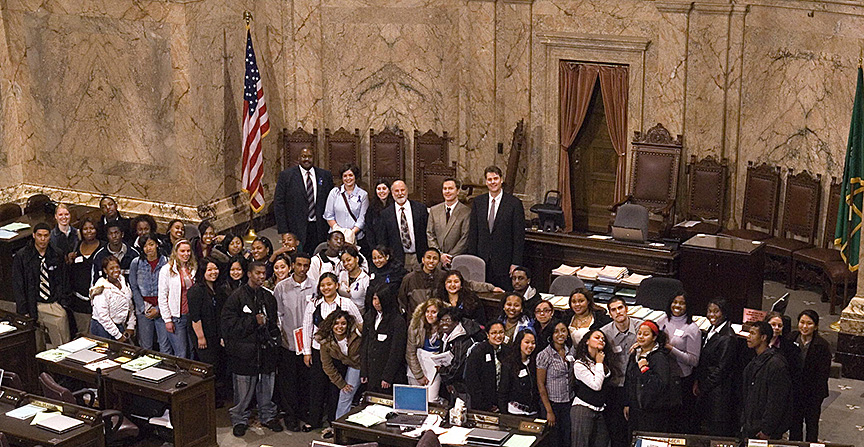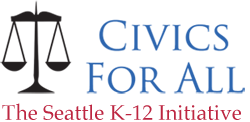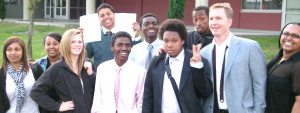PROPOSAL

Summary of the Proposal
- Voting and elections: All Seattle public schools will hold mock elections every November in a manner that befits each school,just as in thePlano, Texas School District, which started city-wide mock elections in 2008. Essentially, each school will choose if they will do online voting via the Sec. of State’s website/voting program or if they will do old-fashioned, in school voting on the day of the real elections. King County Elections will provide formal, student friendly, paper ballots and the Sec. of State’s Office in Olympia has committed to assist in aggregating the online/offline votes. Voter registration of allseniors will be required and all K-12 students will be given encouragement and materials to register their family and community members to vote.
- Their are numerous other youth voter programs to use and grow from, including the University of Virginia’s Youth Leadership Initiative and Mock Elections, KidsVotingUSA, Chicago’s Mikva Challenge. All thre of these organizations endorse and support the Civics for All Initiative.
- Social studies will lead civics education revitalization: Civics/politics perspectives will become a recurrent, intentional point of reference in all K-12 social studies classes. Three civics CBAs(classroom based assessments) will be completed at each grade level. (Currently, only one civics CBA is required in grades 5,7, and 12.) The political spectrum banner will anchor all secondary SS classrooms as will Essential Civics Questions banners.
- Media-literacy instruction, especially related to electoral politics and current events, is a required facet of this initiative, primarily in social-studies and language-arts classrooms. Puget Sound Off, the award winning personalized civic engagement online organization, offers essential support potential for our initiative. Video production is key as well – an ex.: this teen PA on Diabetes 2, from the Bay Area’s www.biggerpicture.org .
- Civics website page: The District’s website/Fusion page for K-12 Civics Across the Curriculum will maintain sufficient capacity to provide teachers with methods and lessons to share and infuse civics lessons across all curricula.
- Professional Development:When possible, PD time shall be allotted and dedicated to teaching civics “across the K-12 social studies curriculum.” The formation of a common instructional language and framework that connects social studies teachers in all grades is central to Civics for All’s objectives.
Research proof on the broad, positive efficacy of these pedagogies and activities is overwhelmingly positive – see CIRCLE’s “Experiments in Political Socialization:Kids Voting USA as a Model for Civic Education Reform (2006)”
“If liberty and equality, as is thought by some, are chiefly to be found in democracy, they will be attained when all persons alike share in the government to the utmost.”
– Aristotle, Politics, 340 B.C.





